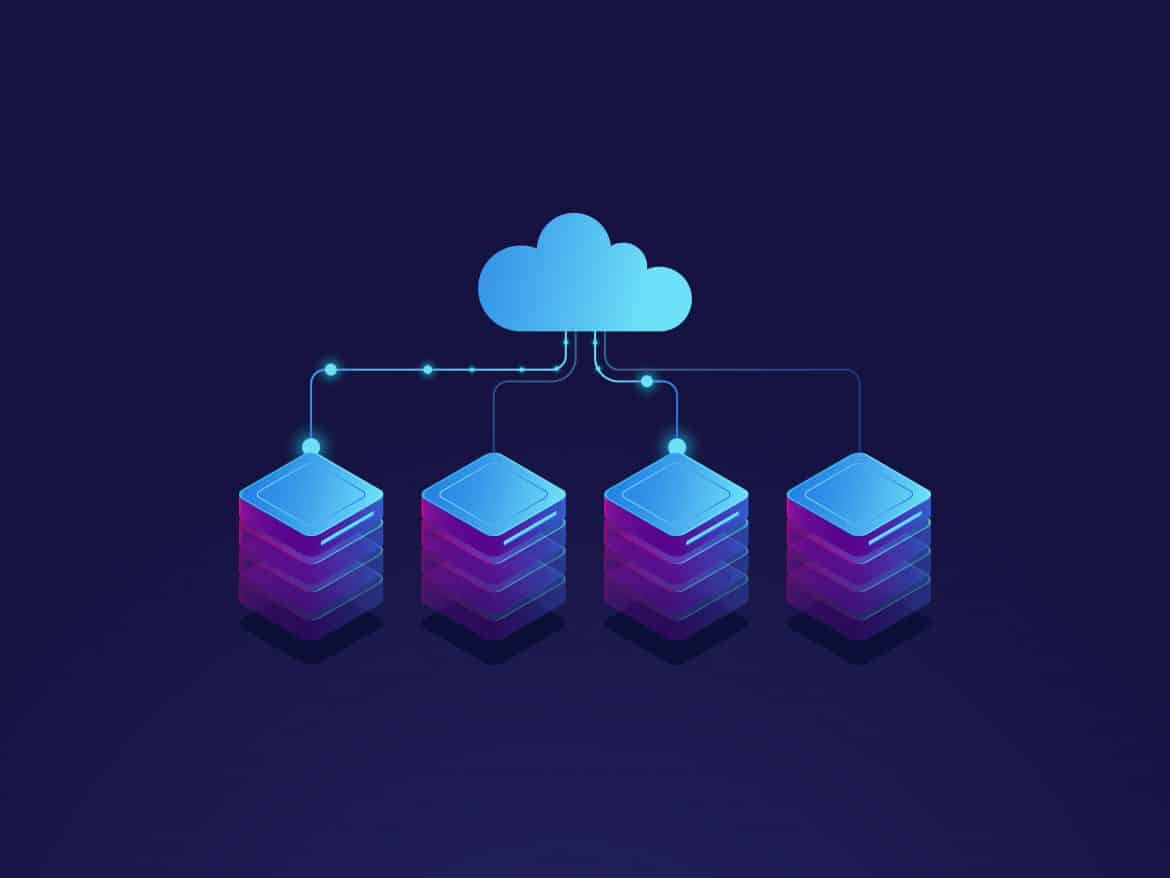You may have heard about cloud computing but did not quite understand what this cloud thing is all about, right? Well, this article is meant for you. By the time you are in the last sentence, you will have all the answers you may be seeking about cloud computing as well as the revolution it has brought about in the supply chain.
In our previous article Digitalization in Supply Chain: What Disruptive Technology Have You Adopted?, you learned what cloud computing is so you don’t need the definition again. Back to our question:
Cloud Computing in Supply Chain: Is it the Most Trending Thing Today?
Gartner, an American renown research and business advisory company, released a report that revealed a tremendous increase in the spend on supply chain execution systems.
In their research findings, they revealed an 11% increase in expenditure on supply chain execution systems in 2017, as compared to 2016. They also projected that cloud supply chain solutions will account for over 90% of the total expenditure on the systems by the year 2020.
Such findings tell you how trendy cloud computing has become over the years. The reason why the technology is gaining popularity at such a remarkable rate is the revolutionization it delivers to supply chains which you will see later in this article.
Which Areas in Your Supply Chain is Cloud Computing Ideal?
Organizations are making two major considerations in selecting where to use cloud computing in their supply chains:
i). The sensitivity of the data to be shared
Areas, where the data involved, is less sensitive are best suited for cloud computing. When your data is quite sensitive, you may opt for other types of technologies.
ii) The effect of sharing data
When a large number of stakeholders benefit from prompt access to information, the network effect is said to be optimal, making cloud computing ideal.
Such an analysis makes the likes of demand planning and forecasting, logistics, and procurement ideal for cloud computing. Areas, where you cannot use cloud computing because of one or both factors, including workforce management and factory planning.
Let us look in detail at each of the areas where cloud can be used successfully
- Demand Planning and Forecasting
You want to have accurate data on-demand to inform supply and production decisions. Cloud computing will come in handy as it will enable you to collect and unify information from all stakeholders: suppliers, customers, and intermediaries across the supply chain. Such information will be very essential in your forecasts.
- Procurement
Cloud computing will enable you to have a database of all the suppliers and contractors. You can customize your system such that the cloud can automatically order from the qualified supplier any time you hit the minimum reorder levels as well as automatically developing contracts. This reduces operational costs in terms of labour and time spent on routine tasks.
- Transport and Logistics
Ask any supply chain executive and they will tell you that logistics is one of the most challenging aspects of the supply chain. Poor logistics can topple the most successful supply chain.
Cloud computing offers the ultimate solution to the logistics nightmare by enabling you to automate functions like inventory management, tracking operations, and transport routing optimization.
Which are Some of the Cloud-Based Supply Chain Software on The Market?
There are several cloud-based software available on the market. Yours is to choose what is appropriate for your supply chain. Some of these software includes:
- SAP SCM
This is a cloud-based solution that has all the features a supply chain requires: planning, networking, execution, and coordination features. It offers an easy backup with no downtime. It has constant updates and enables hefty document storage.
SAP SCM incorporates artificial intelligence and predictive analytics in planning, therefore, increasing responsiveness. It also enables you to keep all the stakeholders updated due to the integrated information sharing functionality. SAP SCM has got several modules like supply network collaboration, transport management, and warehouse management, among others.
Industries like banking, automotive, defence, healthcare, and fashion have massively adopted SAP SCM in their supply chains.
Some of the benefits of SAP SCM include improved communication, more accurate forecasting, better customer service, increased data visibility, enhanced inventory management, and cost reduction.
The software is, however, not suitable for small and medium-sized organizations. It also requires extensive training.
2. Sage X3
This is a tool that is suitable for all businesses, regardless of industry or size. Sage X3 is easily integrated with other programs. It is powered by Android and contains an HTML5 interface that enables you to customize it to fit your specific needs.
Sage X3 is characterized by streamlined workflows that enable you to be in full control of all the processes, from acquisition to shipment. With automated workflows, it is possible to complete tasks that otherwise consume a lot of time when done manually.
Data visualization is another aspect of Sage X3 that makes it popular within supply chains. The system contains over 400 standardized reports. These reports together with the system’s ability to filter data will enable you to visualize your workflows as well as quickly collect data.
With Sage X3, you need not worry about your data security as it is compliant with set security standards. You can also limit data accessibility at different levels, such that users can only access what they have rights to.
It has a purchasing module that has components like purchase requests, supplier invoices, supplier management, and product management.
The inventory management module enables you to track and manage inventory in diverse locations. It also has quality control features to help with stock control.
Other tasks that SageX3 will enhance in your supply chain are like sales management, shop floor control, bill of materials planning, and quality control. For instance, the system allows transactions done at different locations to be automated, applying different prices in such locations as well as discounts. You can undertake variations in different products and bills of materials.
The shop floor control component gives an account of the labor used directly or indirectly. The modules will help you to calculate labor factors like entry time, break time, and attendance.
With Sage X3, it is easy to manage quality since it gives information on product expiry dates and serial numbers. You will be able to identify acceptable products since the system will mark the inspected items, showing the rejected ones that should not be dispatched to the market.
Sectors that mostly use SageX3 include distribution, manufacturing, warehousing, transport, and logistics.
The only limitation of SageX3 lies with its inability to support back order entry. It also doesn’t give speedy access to stock status.
3. Oracle SCM Cloud
This solution has got several applications like supply chain planning, logistics, procurement, and life cycle management support. It offers various integrations depending on your needs.
Oracle SCM Cloud enables expedient data visibility, which informs planning and forecasting. Employees are also able to collaborate in planning the supply chain activities. Oracle also supports distribution planning in a big way. You are also able to manage customer demand in a rather proactive than reactive approach. The cloud-based software has data mining capabilities that will help you to predict promotional strategies that will work for you. It will help you deal with the perennial transport challenges as well as automating warehouse operations.
4. Infor Supply Chain Management
This is a software that delivers cost reduction to supply chains through integrating various functions like distribution and procurement, thereby, improving efficiency. It helps in managing expenditure, optimize supplier relationships, and entirely transform operations like delivery, re-ordering and receiving of goods.
Its major shortcoming is that it cannot be integrated with other software used in other processes like transport management.
Other cloud-based software available for your supply chain includes Cloud SCM software, Supply Chain Management Solutions, and Epicor SCM, among others.
How Has Cloud Computing Revolutionized Supply Chains?
The reason cloud computing is the most trending thing in the supply chain today is the transformation that it brings. Outlined below are some of the reforms that organizations using cloud computing have been able to execute in their supply chains.
- Promotes Cost Effectiveness
Cloud computing superbly reduces operational costs. The system, for instance, reduces the number of staff needed since it does away with repetitive tasks. Look at it this way, the cloud can generate reports that otherwise could have required some man-hours to generate. These human resources can be assigned other jobs, therefore, reducing overall operational costs.
- Enables Integration of Several Platforms
In this digital era, you realize there are so many platforms available for the supply chain. Unfortunately, most of them are incompatible and cannot be integrated. The case is different with cloud computing as it has standardized protocols, enabling multiple platforms to be integrated. Nowadays it is possible to integrate supply chain management with other teams like production planning, engineering, and product development to ensure success in new product development
- Increased Scalability
As your business grows, your IT systems need to evolve to match the business growth being registered. With cloud computing, you can keep pace with the changes that arise from such growth without necessarily having a system overhaul.
Additionally, with cloud computing, you can make use of cloud-based analytics to point out and deal with major inefficiencies in the order fulfilment process, resulting in further scalability.
- Improved Data Security
Have you imagined what would happen to your supply chain if anything happened to your on-site database and you lost all the data? The kind of downtime you are going to experience cannot be explained here!
Fortunately, cloud computing is here to take care of such calamities. Your data is safe in the cloud, more so because most of these cloud hosts are governed by government privacy policies which gives you double assurance.
Parting shot!!!
What is the future of supply chains which have adopted cloud computing?

Cloud computing
It is no doubt, supply chains need to be savvy and agile in their operations. As cloud computing continues to gain popularity in the supply chain, various stakeholders now have safer, better and swifter data access.
Every business regardless of age or size is bound to incredibly benefit from cloud computing as they do away with repetitive, costly and time-consuming tasks and instead focus on more strategic tasks.
With the rapid demand growth, you will be right to project more game-changing features added to the cloud software in the future. Be on the lookout!


1 comment
yes the supply chain and cloud are the solution for development of urban logistic.